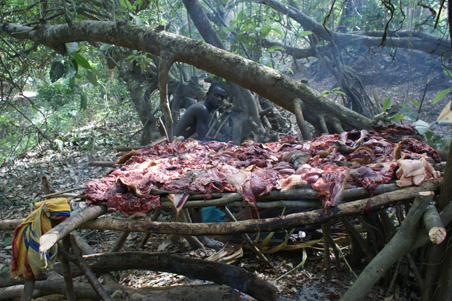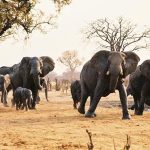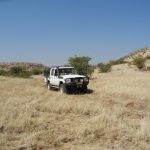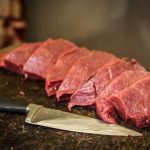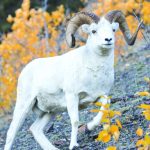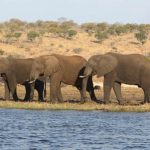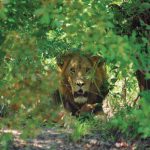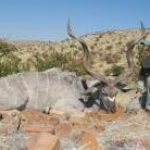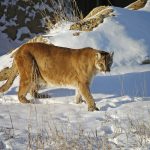Understanding the African bushmeat crisis.
Explaining the differences between hunting and poaching is something most hunters have had to do at some point. Asked by people honestly confused over the distinction between these two activities, we smile perhaps and then explain that not only is poaching illegal and a serious crime, it is unsustainable and depletes wildlife populations–the polar opposite of the legal, highly regulated, and sustainable wild harvest derived through recreational hunting. While the media often plays loosely with these terms, hopefully the majority of North Americans understand the differences between them. Yet hunting, as we know, is a complex topic and seldom are issues surrounding it straightforward. There are many world views, not just those of North Americans, and all of them feed the media’s characterizations of what hunting really means. And what the public understands hunting means will determine hunting’s future.
So take a deep breath, step back, and take a world view. Then, maybe, just maybe, on a global scale, the issues of hunting, poaching, and wildlife sustainability are not so clear after all, for any of us. For example, what about unregulated hunting that is not illegal in many countries but which is often definitely unsustainable? Is it poaching? And what if that over-hunting stems from cultural traditions hundreds of thousands of years old, and contributes heavily to the food security and livelihoods of entire communities? Is that defensible? Aren’t most hunters and a majority of North Americans in obvious support of hunting for food and of traditional, local communities and their well-being? Yet, what if that hunting for sustenance by those communities was also endangering entire species and ecosystems? Are we still in support them? In other words, where does bushmeat harvest fit into our personal views about hunting, poaching and conservation? Does where we stand on these issues depend on where we sit?
The term “bushmeat” is traditionally defined as “the meat of African wild animals as food,” African forests and savannas being commonly referred to as “bush.” It is now well established that hunting for food and livelihoods has negatively affected numerous wild animal species, particularly vertebrates, in tropical and subtropical areas of Oceania, South America, South and Southeast Asia, and over-hunting for wild meat in Sub-Saharan Africa is now considered a major and growing threat to biodiversity in the region. The U.S. Fish and Wildlife Service has concluded that the most immediate threat to the future of wildlife in Africa is, in fact, the consumption of and illegal trade in bushmeat, judging this problem more detrimental to wildlife conservation efforts than even habitat loss.
Bushmeat consumption targets a wide array of species, including some that are currently listed as endangered. Left unchecked, bushmeat harvests will inevitably lead to extirpation of these life forms. Small, isolated populations of highly endangered animals are especially vulnerable and can be disproportionately affected, as in the case of Great Ape species. We need to remember that such losses remove not just the animals themselves from ecosystems, but also their functions. Species function as prey for other species, as seed dispersers and forest rebuilders. Thus, reductions in certain species can have far-reaching impacts on numerous others, domino impacts that accelerate biodiversity loss and place ecosystems in crises of instability. It is now estimated that more than a quarter of all mammal species hunted for bushmeat are threatened with extinction. This is a massive conservation challenge and one all hunters should be concerned about. Hundreds of thousands of African animals are being killed annually for bushmeat, almost always by trapping and snaring. Recent reports estimate as much as 5 million tons of bushmeat are being harvested annually across the Congo Basin alone, for direct local consumption and for sale in larger urban markets.
As North American hunters and wildlife advocates, our first reaction to this news may be one of outrage, quickly followed by righteous indignation. Surely, we think, those people need to stop what they are doing. Wildlife is being depleted, species are being endangered. We must do something! For the less informed, the issue can be even more confusing and colors the debate over poaching and hunting and undermines their willingness to consider hunting as a conservation practice. In fact, it encourages their view that all hunting is conservation-negative. Yet, we all need to remember this harvest is all about food and livelihoods, and in many cases, may not be in conflict with any national conservation laws at all, though in some cases it clearly is. Regardless, these individual hunters need the wild food they harvest and the income they derive from its sale. No, their hunting may not be as sustainable or as well-regulated as our recreational hunting here in North America, but it is far more urgent and essential. So, solving this problem and informing the many perceptions around it will not be easy. Complicating things further is the fact that, today, there are two types of bushmeat hunters in Africa.
First, there is the traditional bushmeat hunter whose ultimate goal is to feed himself and his family. He typically resides in a very rural area and has lived and worked in conditions most Westerners would describe as “extreme poverty.” As much as 85 percent of his family’s total protein is sourced from bushmeat and he may still struggle to meet the family’s basic nutritional requirements. While he may sometimes trade meat for other foods or goods with friends and neighbors, his focus when hunting is subsistence, not profit. He hunts “for the pot,” so to speak, and his interactions with local wildlife closely resemble those of his ancestors. His choice of wild meats may not always coincide with the typical North American palate, but his primary motivations are universally understood. He does not have the luxury of choosing whether he would prefer a grocery store alternative. He hunts for food and eats to live.
Then there is the commercial bushmeat hunter. Bushmeat has become big business, a luxury trade, and for those involved in supplying the meat, hunting is now a livelihood choice. While some of the animals killed may still be used for subsistence, the primary motivation for this type of bushmeat hunter is income and profit, two motivations North Americans should surely understand. This hunter provides for himself and his family through organized, profitable, sometimes unregulated, and sometimes clearly illegal trade. He is less likely to live in as extreme poverty as the first hunter, though he is likely familiar with it. He kills large numbers of animals when possible, often during migrations when millions of animals travel vast distances across various parts of the African continent, at times leaving protected areas and straying onto community land where they may be killed by hunters without fear of legal consequences. The commercial hunter cleans and stacks his kills, sometimes piling hundreds of carcasses to await pick-up by his employer’s agent, to be transported across geographic and political boundaries. He, in turn, receives his weekly paycheck.
The markets are not just African. Commercial bushmeat hunting forms the basis of a multi-billion-dollar international trade, involving hundreds of species, from antelopes to rodents, from elephants to bats. Once exploited because of low cost, tradition, weak law enforcement, and/or lack of food alternatives, bushmeat now supports a sophisticated commercial trade run by international criminal syndicates. The dramatic increase in bushmeat value in recent years has been spurred by demand from growing urban populations throughout Africa, coupled with the increasing demand for bushmeat products by established cultural communities internationally. An estimated 7,500 tons of bushmeat enters the European Union each year and, while North American numbers are harder to come by, we know that it’s becoming more common to find bushmeat, especially from primates, at clandestine markets in urban centers across the United States and Canada. This commercial trade is often facilitated by logging ventures (whether legal or illegal) that create new roads and offer easy access not only to remote wildlife habitat and better transport routes, but also to new pools of impoverished rural hunters from which to draw recruits.
It is not difficult to comprehend the motivations of either the first or the second hunter. We may not agree with either of them entirely, at least in theory, and we may feel inclined to judge the second hunter more harshly, but neither circumstance is outside our comprehension. And it is easy to imagine how the first hunter for subsistence becomes the second hunter of commerce. Whether a person lives in Africa or North America, food and income are necessary to survival, and the ease with which these may be secured greatly affects quality of life. One makes the most of what one has.
For the international community to effectively engage this issue, it is not enough to demonstrate that bushmeat hunting, especially for commercial trade, is unsustainable, that it is depleting wildlife populations and endangering iconic species. The fact is that bushmeat remains a necessity for many, and it is, understandably, difficult to feel concern for wildlife and some distant future when day-to-day living is a struggle. International criticisms and directives, without offering viable solutions, will never solve the bushmeat crisis. To find solutions, we must first understand not just the problem, but its roots. Do we need enforcement of hunting quotas and better endangered species protections in Africa? Yes. Do we believe that cultural reliance on bushmeat may have to change to some degree? Yes. Should we create educational programs to alter public perceptions and educate the future consumer base for bushmeat? Of course. But above all else, we must address the concerns of average citizens who, like us, worry about feeding their families and about finding and keeping a job that pays well but who, unlike us, live amid Africa’s wildlife and the immediate challenges and opportunities it presents.
Relieving the bushmeat crisis will bring long-term benefits to wildlife and people and is a laudable goal for these reasons alone. It will also help remove one more factor contributing to public confusion over hunting’s conservation value.

